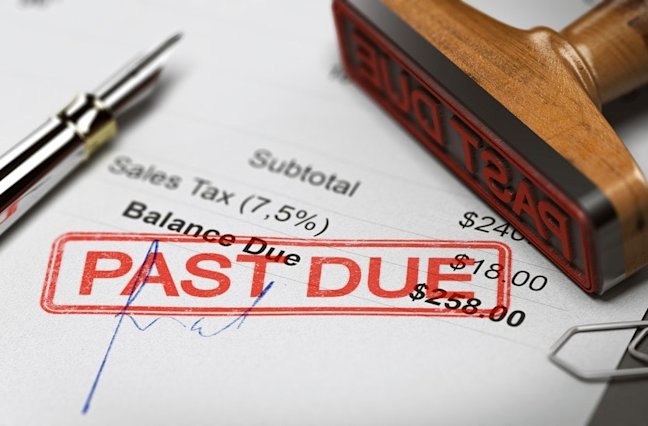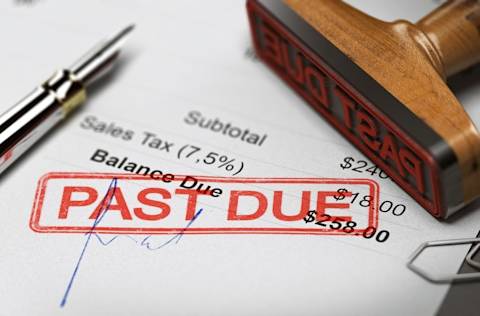AI + collections: How technology can help organizations adapt to change, fast
Learn how AI and other technology can help support collections organizations. CallMiner will be speaking at the Collections Technology Think Tank 2.0 ...
CallMiner Outreach is here! |Learn about the future of CX

Solutions
Products
Customers
Solutions
Products
Customers
Resources
Company
The Team at CallMiner
April 13, 2020


Debt collection companies of all stripes must abide by both local and international regulations to operate lawfully. The Fair Debt Collection Practices Act establishes such legal guidelines in the US, limiting the actions debt collectors can take without liability.
Although most of the FDCPA’s stipulations could be considered common sense to industry professionals, there are a number of important details covered in addition to the more obvious ones that should be taken into consideration. Below, we have covered the essential highlights regarding the FDCPA that debt collectors should understand.
The Fair Debt Collection Practices Act very clearly defines the term debt collector as “any person who uses any instrumentality of interstate commerce or the mails in any business the principal purpose of which is the collection of any debts, or who regularly collects or attempts to collect, directly or indirectly, debts owed or due or asserted to be owed or due another.” However, there are a number of unique exceptions to this definition also given in the act itself. These exceptions do not qualify legally as debt collectors and are as follows:
Although creditors often employ individuals to assist in collecting debts owed them in their name, these individuals do not legally qualify as debt collectors and cannot be held accountable for their employer’s decisions.
The FDCPA describes these individuals as any who collect debt for another person. So long as these individuals have no legal stake in the debt collected and do not collect debt for a living, they are not considered actual debt collectors even if they have corporate connections to the creditors they serve.
When debt is collected by government officials for government purposes, such officials are not considered debt collectors.
Individuals who are serving legal processes on others backed by judicial enforcement are exempt from the restrictions that debt collectors are subject to under the FDCPA.
These organizations regularly assist in handling debt liquidation for consumers by receiving debt payments directly to pay creditors. None of these organizations qualify as debt collectors under the Fair Debt Collection Practices Act.
Anyone collecting debt under the following circumstances is exempt from the classification of “debt collector”:
The FDCPA establishes clear guidelines and best practices for debt collectors to follow to stay out of trouble while performing their duties. A few key examples are as follows:
Debt collectors looking to fully abide by the rules laid out in the FDCPA should only contact consumers between 8:00am and 9:00pm.
If an attorney is involved to handle debt payments for a given consumer and the collector knows about their arrangement, then they should specifically contact the attorney.
Also, collecting debt from consumers at their workplaces should be avoided if their employers do not allow it.
As per this act’s specifications, debt collectors should submit written notices to consumers containing all pertinent details regarding their outstanding debts. Such notices ought to be sent within five days of first communicating with consumers about the collection of such debts.
The Fair Debt Collection Practices Act explicitly forbids certain actions from being taken. A few of these are as follows:
Naturally, unlawful activity pertaining to debt collection is prohibited within this act. Specific offenses include the following:
In accordance with this act, debt collectors are forbidden from presenting consumers with false information as a means of manipulation. This applies to the way the collector presents themself to the consumer as well as insinuations about consequences of failure to pay their debt.
The unfair practices described in the FDCPA pertain largely to the use of extortionate tactics, such as tricking consumers into paying collect phone call bills, charging additional fees that were not agreed upon as punishment for failure to pay or attempting to seize control of property that collectors have no right to. Also, collectors are prohibited from communicating with consumers about their debts via postcards.
For information on the utility of AI in preventing fraud, etc., take a look at our white paper, Sitel + CallMiner Survey: Preventing Fraud and Preserving CX with AI.
Maintaining compliance is a significant concern for debt collection agencies. There are several tools debt collection agencies can leverage for more efficient, cost-effective operations that can help to reduce compliance risks.
To maximize efficiency, reduce delinquencies, and mitigate losses, many debt collection companies are leveraging collection analytics solutions. Collection analytics tools can help companies collect valuable data about consumers that can aid in developing collections strategies in the different stages of collections, such as customer segmentation based on scoring, identifying the best times to contact consumers, setting the correct tone for agents based on the consumer’s profile, and determining the most cost-effective contact methods based on how likely customers are to respond.
Speech analytics tools are also valuable for debt collection agencies in ensuring compliance, by supporting employee training to eliminate the risk of FDCPA breach violations. They can also leverage artificial intelligence and machine to provide real-time guidance for collection agents during their calls on how to reach the best call outcomes with debtors based previously successfully methods used.
Tools that monitor calls and score them for important factors such as the use of Mini Miranda language, Right Party Contact language, and FDCPA violations can also boost compliance for debt collection agencies.
Additional information about the Fair Debt Collection Practices Act can be found on the official FTC.gov page.
What tools and solutions does your debt collection agency rely on to ensure FDCPA compliance?
CallMiner is the global leader in AI-powered conversation intelligence to improve customer experience (CX). CallMiner delivers the industry’s most comprehensive platform to analyze omnichannel customer interactions at scale, combining deep domain expertise with cutting edge AI analytics and machine learning. By uncovering better intelligence, CallMiner enables companies to identify areas of opportunity to drive better experiences, ultimately leading to business improvement, growth and transformational change. CallMiner is trusted by the world’s leading organizations across all major verticals including technology, media and telecom (TMT), retail, manufacturing, financial services, healthcare, and travel and hospitality.